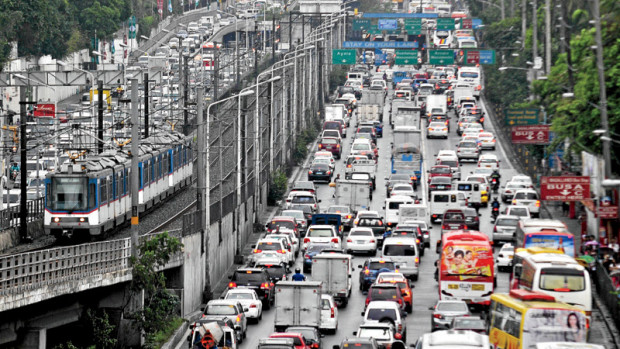Senate panel enumerates powers of Traffic Crisis Manager
In granting President Rodrigo Duterte emergency powers to deal with the country’s traffic problem, a joint panel in the Senate has listed at least 10 “powers” to a traffic manager, who would have authority over land, air, and seaport traffic.
These powers were enumerated under Senate Bill No 1284 or the “Traffic and Congestion Crisis Act of 2016,” which was approved by the Senate committees on public services, constitutional amendments and revision of codes, and finance.
The bill was already endorsed for plenary consideration by Senator Grace Poe as chair of the committee on public services before Congress adjourned its sessions last December 14.
READ: Emergency powers bill advances to plenary
Under the measure, the President will appoint a Traffic Crisis Manager, who would have the rank, emoluments, benefits and privileges of a member of the Cabinet.
“The Traffic Crisis Manager shall be ultimately responsible for transportation and traffic-related functions; thus, exercising overall traffic management and overseeing the execution of the Traffic Crisis Action and Decongestion Plan,” it said.
“For the duration of the emergency powers, the Traffic Crisis Manager as the delegated representative of the President, shall have all the authority to implement a policy framework and manage agency functions over land, air, and seaport traffic, and shall coordinate with the relevant local government units on the implementation of projects that will facilitate the ease of traffic in the Metropolitan Areas,” the bill added.
As the alter ego of the President, the Traffic Crisis Manager would be authorized to exercise “all powers necessary, and to utilize all necessary government resources, exercise police power, and employ executive actions and measures to ensure the effective implementation of the program of action” provided for in the measure.
The Traffic Crisis Manager would have the following powers:
- Formulate, coordinate, and monitor policies, standards, programs, and projects to rationalize the existing public transport operations, infrastructure requirements, the use of thoroughfares, and promotion of safe and convenient movement of persons and goods;
- Create such inter-agency task forces and designate Action Officers therefor, comprising of personnel and resources from national and local government units and agencies, as may be necessary to achieve specific goals within specified time frames;
- Create a centralized air traffic authority;
- Re-structure the routes and operating protocols imposed on road-based public transport service providers, encompassing provincial and intra-city buses, jeepneys, taxis, shared taxis, garage-to-terminal express, and similar categories;
- Order the modification, revision, amendment, substitution, suspension or revocation of franchises issued by the The Land Transportation Franchising and Regulatory Board and those issued by local government units for tri-mobiles;
- Issue a uniform Traffic Code;
- Determine the priority infrastructure projects that may be implemented by agencies responsible for roads, railways, traffic engineering, public transport facilities such as terminals, stations, and passenger interchange structures;
- Set a limit, reduce, or manage the volume of users in gateway seaports and airports, for immediate execution of the responsible government authorities;
- Appoint, hire, contract experts and qualified personnel as may be necessary, but not otherwise available in the cooperating agencies; and
- Exercise other powers as may be necessary to fulfill the declaration of policy of this Act.
In sponsoring the bill on the floor, Poe dispelled possible abuse of powers since there will be a congressional oversight committee that she said will monitor its implementation.
“Mr. President, while there are many things that this bill is about, there are equally many things that this is not. It is not the sole handbook to fix our traffic problems. It is but one of many,” she said.
“The Senate needs to do its part to help address the traffic crisis. But we also expect the executive department to do theirs. If this bill passes into law, then the executive department will no longer have any excuse and should stop pointing fingers as to its inability to address the traffic crisis in the country.”
Plenary deliberations on the measure will start when Congress resumes its sessions in January next year. JE/rga
